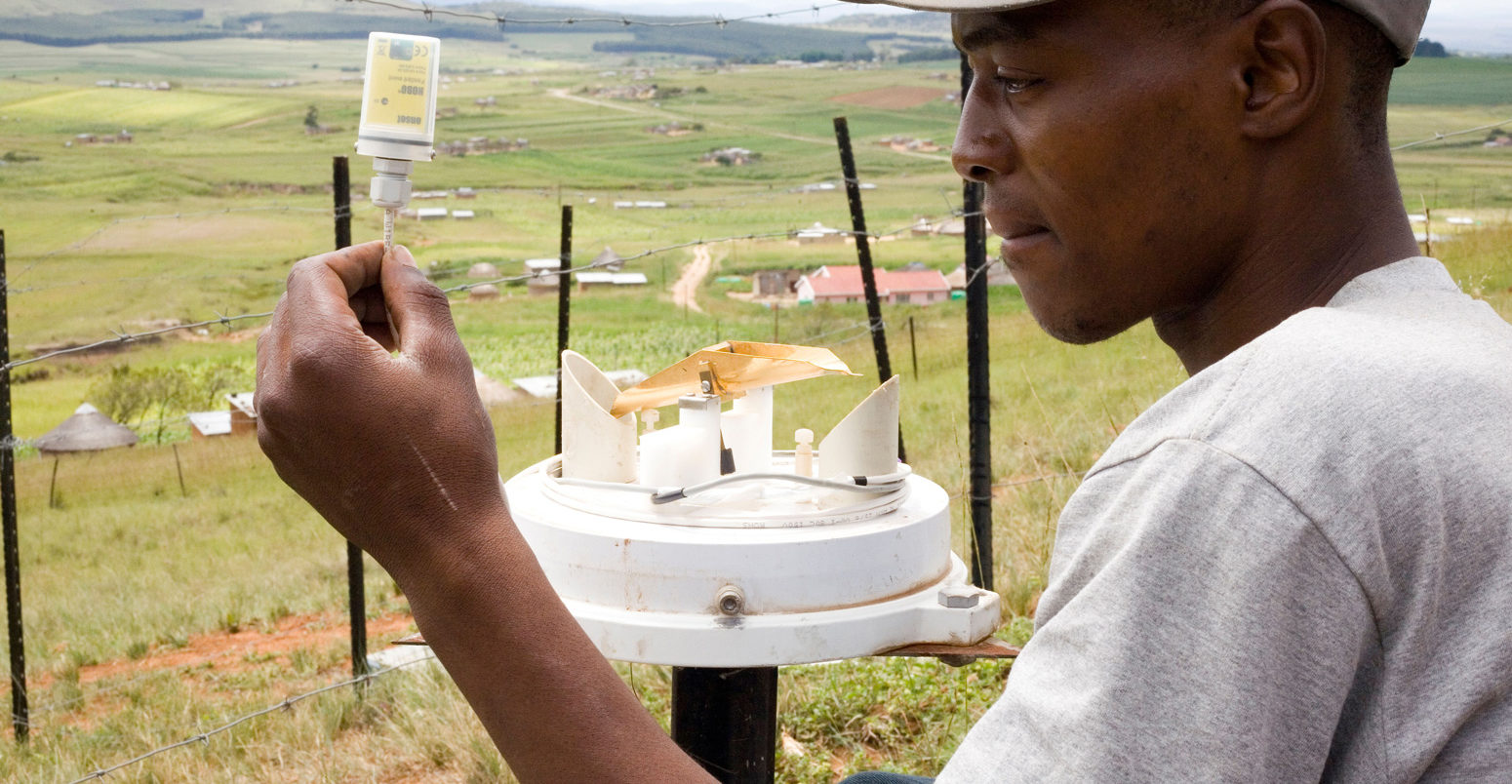
Researchers: The barriers to climate science in the global south
Carbon Brief Staff
10.07.21Carbon Brief Staff
07.10.2021 | 2:00pmMany researchers from the global south face obstacles towards conducting and publishing high-quality climate research.
- Analysis: In-depth Q&A: What is ‘climate justice’?
- Analysis: Which countries are historically responsible for climate change?
- Analysis: The lack of diversity in climate-science research
- Climate justice: The challenge of achieving a ‘just transition’ in agriculture
- Experts: Why does ‘climate justice’ matter?
- Guest post: An Indigenous peoples’ approach to climate justice
Such obstacles can include language barriers, complications with funding and publishing, a lack of access to equipment and “parachute science” – in which researchers from developed countries gather data from poorer countries without contributing to their development or local science capacity.
Here, Carbon Brief features six early career climate scientists, who have conducted research in Indonesia, Cameroon, South Africa, Brazil, Ghana and India. Each individual was asked to explain the main barriers that they have faced as researchers from the global south.
As there is no fixed definition of an “early career researcher”, it is defined here as an individual who has completed their PhD (or highest other academic qualification) in the past eight years.
- Dr Ojong Enokenwa Baa, Cameroon and South Africa: “My safety and that of my fellow researchers was also at risk, because in the east region [of Cameroon], it was common for people (especially strangers) to be kidnapped by rebels from the Central African Republic.“
- Dhita Mutiara Nabella, Indonesia: “English is not the primary or secondary language in Indonesia and so there are still many millions of people across the country who do not fully understand it. Although I have studied English for many years, this does not eliminate the difficulties I face when I study and work.“
- Dr Afonso Goncalves, Brazil and the US: “Despite the amazing network of friends and mentors, I never really felt comfortable in the US. It was just not home. Daily microaggressions constantly reminded me that I did not belong there.“
- Dr Marcel du Plessis, South Africa and Sweden: “This lack of knowledge and networks in African universities provides a significant barrier to not only the development of young scientists, but the development of climate science as a whole.“
- Dr Abubakari Ahmed, Ghana and Japan: “After securing small grants and working in poor academic environments, I get my biggest frustrations from international journals and reviewers. I had several experiences of “gatekeeping” with some international journals.“
- Prof Namita Chakma, India: “The participation of indigenous people in the political decision-making process is alarmingly low. As a result, often their issues are not prioritised during policy implementations.“
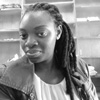 Dr Ojong Enokenwa Baa
Dr Ojong Enokenwa Baa
Recent PhD graduate from Rhodes University, South Africa
PhD research conducted in Cameroon
I am a social-environmental researcher at Rhodes University in South Africa, working to bridge the divide between natural and social sciences. I am particularly interested in gender, social differentiation, climate change, forest resources, vulnerability and rural livelihoods.
For my PhD, I chose to conduct fieldwork in Cameroon, where I grew up. My study aimed to explore how different types of gendered households in two ethnically diverse communities respond to climate change and other related stressors in the south-west and east regions of Cameroon.
Embarking on my fieldwork in Cameroon, I wasn’t ready for the psychological and physical challenges I would encounter.
The political context in which research is conducted in the global south can seriously affect the data collection process. I conducted my fieldwork in 2017, when Cameroon was preparing for municipal, senatorial, parliamentary and presidential elections.
It was sometimes difficult to get respondents to sign or to attest to having answered my surveys for fear of signing a political document. Many local government officials even indicated that their presence in my group discussions with community members would be interpreted as politically motivated.
My safety and that of my fellow researchers was also at risk, because in the east region, it was common for people (especially strangers) to be kidnapped by rebels from the Central African Republic.
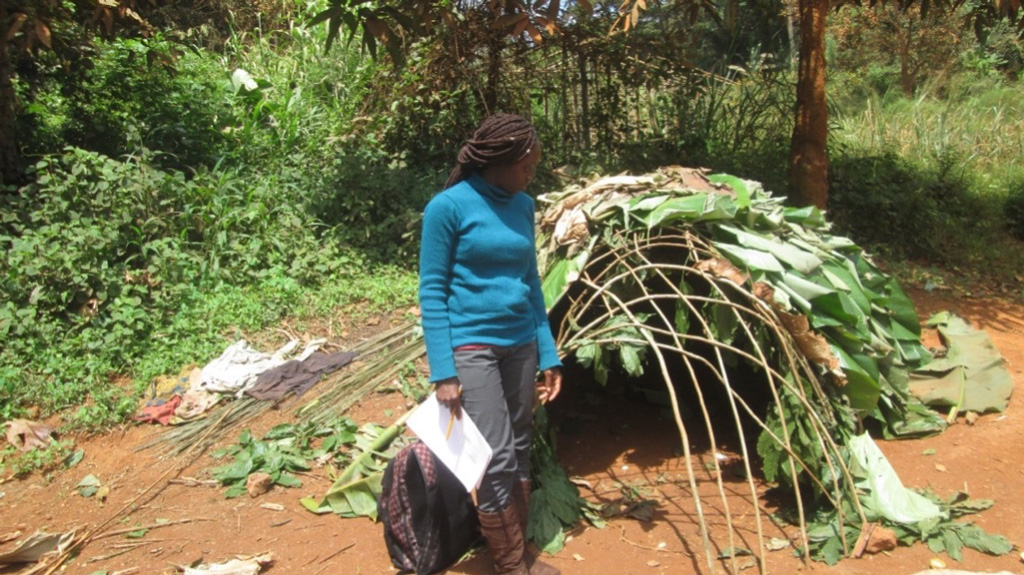
Political instability and unrest due to the “anglophone problem” in the south-west region – the marginalisation of the anglophone minority by the francophone majority in Cameroon – further constrained data collection.
The marginalisation of anglophones has sparked much animosity and has raised tension between anglophone and francophone institutional systems. A consequence of this political unrest was the introduction of the “Monday ghost town days” by separatist fighters in the south-west region, which meant that no travel, meetings or administering of questionnaires was possible on all Mondays.
I had not predicted that this would happen during my fieldwork and had to make changes to my fieldwork within the Ejagham communities – one of the communities in which the ghost town days were implemented. The civil unrest made me realise that researching in an unstable context can affect you emotionally and psychologically.
In the south-west, the ongoing anglophone crisis caused crossfire confrontation between separatist fighters and military – although this was not as common as it is today. Two months after returning from fieldwork, a village I worked in was destroyed and many families displaced. The village – like many other villages – was burned down by the military in their attempt to get hold of separatist fighters who allegedly lived there.
Another of the hurdles I had to cross was making the tough decision to leave behind my one-year-old son in South Africa. After waiting for his visa to enable me to travel home with him for more than four months, I had to let my supervisor know I was ready to leave him behind. The trauma I lived with during my fieldwork was the picture of his face crying at the airport. But the tougher pain I experienced was on my return and him not recognising me anymore as his mom.
My experiences might resonate with you, or may not. The goal is to let other early career researchers know possible setbacks that can hinder their research progress when conducting research in the global south.
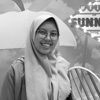 Dhita Mutiara Nabella
Dhita Mutiara Nabella
Programme officer at the Research Centre for Climate Change, University of Indonesia
I was born and grew up in Indonesia – a developing country in south-east Asia with a unified language of Bahasa and more than 700 local languages. I am 24 years old and working as a programme officer at the Research Centre for Climate Change at the University of Indonesia. I am also establishing a climate story community – called Cerita Iklim – with the goal of establishing a platform for youths to learn about climate issues.
I am privileged to have been learning English since I was in elementary school. English is not the primary or secondary language in Indonesia and so there are still many millions of people across the country who do not fully understand it.
Although I have studied English for many years, this does not eliminate the difficulties I face when I study and work. When I was in college, it took me a long time to grasp the content of books and journals in English. Although many references have been translated into Bahasa, they are often incomplete and not updated.
The challenge continued as I entered work. Alongside working on administrative matters, I also write papers based on the results of our research around climate issues in Indonesia. We have a target for our papers to be published in Q1 journals (the top 25% of journals based on impact factor) because our research discusses a framework that has a high novelty.
Although we write our papers in English, we always need to copy-edit the manuscripts before we submit them to the journal. I usually find various services that provide manuscript copy-editing, then choose a service that suits our budget. However, copy-editing can be very expensive. For example, for a manuscript of 6,700 words, it costs US$3,800 for scientific copy-editing standards.
I have tried various services from different platforms, ranging from affordable to very expensive, but of course price is proportional to quality. When I tried a copy-editing service at an affordable budget, the results were not as good as when we had a higher budget.
After submitting the copy-edited manuscript to the journal, we often get comments from reviewers regarding incorrect grammar. This means that I often need to copy-edit the manuscript twice before I can finally publish it. This is a barrier and a challenge for me as a scientist, because I need a greater budget and more time before finally my papers can be published in international journals.
Based on my experience, being a scientist from a non-English speaking country has its challenges. In Indonesian schools, English is not a compulsory subject, so many researchers have difficulty understanding references in English. Therefore, it is very important to disseminate information in Bahasa, so that the information can be received inclusively.
This was one of the motivating factors for me to build the Cerita Iklim community. One of the products we work on is a paper review, where we try to discuss English journals, translate them into Bahasa and then present them through attractive and easy-to-understand infographic posters.
Thus, I hope that more researchers, especially young people, will learn more about the changes already happening in the climate system and how they will worsen in the future. With the spread of information, I hope that all parties can work together to deal with the climate crisis for a better future.
 Dr Afonso Gonçalves
Dr Afonso Gonçalves
Postdoctoral researcher at the Federal University of Santa Catarina, Brazil
PhD conducted at the University of Rhode Island, US
I am a white, straight, middle-class man from Brazil – a developing country where white, straight, middle-class men do not have to worry about being ignored, stepped on, or murdered just for being themselves. So, in Brazil, I consider myself very privileged.
As an oceanographer trying to help address the climate crisis, the best postgraduate programmes in my field are in the global north – mainly in the US. Not many people living in the global south are allowed to dream that high, but I was. My parents were able to afford a four-year English course when I was a teenager and I had a pretty good education overall.
It was my white privilege that allowed me to dream. So I dreamt of studying abroad. And, in 2016, I woke up as a minority in a foreign country. Despite the amazing network of friends and mentors, I never really felt comfortable in the US. It was just not home. Daily microaggressions constantly reminded me that I did not belong there. Having an active voice in the discussions about diversity and inclusion on campus did not help, as they rarely addressed xenophobia.
Nevertheless, I was at a world-class oceanography school, where I had access to infrastructure and resources, including state-of-the-art computers, easy access to cloud computing, institutional subscription to software and IT support. I lived in this paradox for five years.
After my PhD, I had two options. I could work in the US with continued access to cutting-edge technology and proximity to the world’s top researchers and institutions, at the expense of feeling like an outsider. Or I could live in Brazil and be close to my family and friends, speaking my own language and enjoying my own culture.
For me, returning to Brazil for a postdoctoral position was an obvious move. I have always wanted my research to positively impact the most vulnerable communities in the global south – those that lie away from opportunities and from the benefits of science and technology. However, moving back home has definitely affected my research.
My laptop, for example, is five years old. I deal with large geophysical datasets, that demand high computational power, and use my computer for everything: reading, writing, analysing data, plotting graphs and designing animations.
Without access to servers or supercomputers, my principal investigator pays for cloud computing out of her pocket. I double as an IT support technician since the university does not provide us with IT service. Between that and learning an open-source programming language – one that won’t cost us thousands of dollars – there is limited time left for research.
Returning to Brazil amid a pandemic exacerbated the distance from the global scientific community. I was invited to a prestigious once-in-a-life-time workshop in Hawaii for recent PhDs in physical oceanography, but unlike my colleagues in North America and Europe, I cannot attend it in person.
I am not allowed to travel to the US since I am not fully vaccinated and there is a travel ban for Brazil. Science denial and lack of investments in research add up to both worsen my working conditions and isolate me from my peers in the global north.
My dad insists that I should have stayed in the US and enjoyed the benefits of being a scientist there. I disagree. I strongly believe that I am a better asset in Brazil. We need global solutions to tackle global issues like climate change, and the global north has to incorporate that idea into action. Resources, technology and funding opportunities must be democratised globally if we dream of a net-zero future. And I am allowed to dream.
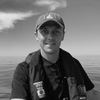 Dr Marcel du Plessis
Dr Marcel du Plessis
Researcher at the University of Gothenburg, Sweden
PhD conducted at the University of Cape Town, South Africa
Four years ago, as a PhD student from South Africa, I attended a climate science conference in China to present my research on ocean glider data we collected in the Southern Ocean. As a side event of the conference, I joined an early career researcher workshop with young professionals from all over the world.
It was here that I connected with a community of Young Earth System Scientists (YESS). Later, at a social gathering organised by the YESS community, the African regional group began discussing how not all young scientists are equipped to address the challenges set out in the conference discussions. Particularly, African scientists don’t seem to have all the resources needed to address these challenges.
These discussions continued after we all went home and 11 of us continued to share our stories with each other. Together we identified five significant challenges faced by young African climate scientists and formalised them into an article that was later published in Nature Climate Change.
Of course, not every challenge we published was faced by every young African climate scientist, but these challenges certainly do exist and are a reality to many who are starting out their careers in these very uncertain times. For instance, underfunded research facilities and computational limitations are pertinent in many universities, while low investment in African weather stations and poor government investment means that – despite significant improvement in remotely sensed data – large uncertainties over Africa exist.
The topic most relatable to me – and the one that has most impacted me – is that of limited collaborations.
I was fortunate to be educated and trained at the University of Cape Town – widely considered to be one of Africa’s top universities. Furthermore, I studied for my PhD with the Southern Ocean Carbon and Climate Observatory, a well-resourced group at the Council for Scientific and Industrial Research investigating the role of the Southern Ocean in mitigating climate change.
During my time there, I worked with research groups across the US and Europe and was exposed to many different research cultures. The more I did this, the more I realised how close American and European groups are to a vast range of knowledge – both from within their own institutions and from nearby groups.
This extended beyond knowledge and to mentorship as well. The large cluster of experts in climate science in the western world provides a significantly larger and more diverse range of mentorship styles and opportunity for young scientists to access.
After each visit, I would feel invigorated by the exposure to the different research cultures and the ability to meet people working in similar research fields, despite not being directly related to my work. I would miss those interactions when I went back home.
Reflecting on those interactions, the professional growth I experienced gave me some of my best learning experiences as a young climate scientist. The vast geographical distance of African institutions from those with well-funded research programmes that have large teams with significantly more capabilities makes it difficult for young African scientists to meet and network with leading scientists in their field.
This lack of knowledge and networks in African universities provides a significant barrier to not only the development of young scientists, but the development of climate science as a whole.
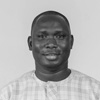 Dr Abubakari Ahmed
Dr Abubakari Ahmed
Lecturer, Dombo University, Ghana
PhD conducted at the University of Tokyo, Japan
I am a lecturer at the department of planning of the SD Dombo University of Business and Integrated Development Studies in Ghana. I received a PhD in sustainability science from the University of Tokyo in 2018 and am also an Alexander Humboldt research fellow at the University of Trier, Germany, with a research focus on the water-energy-food nexus.
As an early-career researcher in the global south, I face three interrelated problems of research, publication and funding. In terms of research, aside from the limited office working space, restricted access to online journals and inadequate research facilities, I have – over the years – worked in a silo.
In the global north, senior professors have their own research groups/labs with several early-career researchers under their mentorship. However, this is not the case in Ghana. Senior professors here are often quick to “use and dump” early-career researchers without supporting their academic progression because of fears that such mentees may become more academically productive than them.
As a result, I am compelled to “keep my own space”, thereby working in a silo without many local collaborations because of the fears of “use and dump”.
Second, getting funding is a major problem for my academic career. African governments – including that of Ghana – are underfunding academic research and yet grants have become a major criterion for assessment during promotions. Admittedly, international funding is available, but it can be quite complicated to obtain because of competition.
I am also used to sending last-minute grant applications – largely because I get the information too late. My university does not have a dedicated office mandated to provide timely information on grants and funding – hence, I rely on friends or social media. Also, I do not have access to mentorship and grant application services at my university to help improve my applications.
Finally, after securing small grants and working in poor academic environments, I get my biggest frustrations from international journals and reviewers. I had several experiences of “gatekeeping” with some international journals.
For example, I once sent a manuscript to a journal and I received a desk rejection because my topic was well covered in their journal. A few months later, they accepted and advertised a special issue on the same topic.
In another instance, I received a desk rejection on the basis that my topic – the water-energy-food nexus – was out of the scope of the journal, although it was explicitly mentioned in their aims and scope and I saw similar papers on the same topic published by them. A month later, I saw that the journal published two papers on the same topic.
Aside from the gatekeeping, reviewers are very insistent in pushing me to adopt and use their preferred choice of concepts, or in dictating how I discuss my results. Sometimes, the comments are insulting and targeted at making me change or drop novel ideas.
For example, I was once asked by a reviewer to drop a proposed concept that could be an alternative to an existing concept developed by the same reviewer. I got the feeling that the reviewer does not accept plural or alternative views especially when the ideas come from studies from authors based in less privileged universities in the global south.
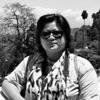 Prof Namita Chakma
Prof Namita Chakma
Professor, University of Burdwan, India
Over 2018-20, I carried out research in Sikkim and Duars in the eastern Himalayas – on “the responses of indigenous communities to the changing climate and its impact on life and livelihoods”.
The eastern Himalayan region and its foothills are home to a variety of indigenous people supporting themselves through agriculture and forest-based livelihoods. Both regions have a long historical evolution emerging from the pre-colonial to the post-colonial period. Over the course of this study, I saw that climate research in these indigenous communities is often hindered by a number of barriers.
First, there is a lack of long-term daily data on climatic variables in this region – in part due to the lack of reliable weather stations. In the Sikkim and Duars regions, the number of such stations are limited and stations with a database of 50 years or more are very few.
The absence of daily datasets hinders the study of extreme climatic events, which are directly related to climate change. Therefore, I had to rely on the grid-based meteorological dataset for the long term (more than 100 years) climatic variables analysis, provided by the Indian government’s meteorological department.
This kind of data has some inherent limitations and is unsuitable for micro-regional studies. Furthermore, it is only available for two climatic variables – temperature and precipitation. Other parameters such as relative humidity and potential evapotranspiration are not included. Another problem is the lack of continuity in the long-term climatic data sets.
The remote and inaccessible terrain of the settlements of these communities were also barriers during the field study, as I often had to walk 2-3km due to poor road conditions to talk to people.
The situation became worse during the rainy season, when landslides in mountainous areas of Sikkim and floods in the foothill-Duars region are regular occurrences. In severe cases, it often took several weeks to months to return to normality. During field visits, I often faced landslides and spent long hours waiting until the boulders were cleared from the road.
Furthermore, the indigenous communities living in remote areas and in isolated conditions are accustomed to their own dialects only. Understanding their situations and recording their responses properly was, and will remain, a huge challenge due to language barriers.
I also noted a lack of coordination among scientists, policymakers, government officials and indigenous communities – and found that people in remote and isolated communities often lack understanding of government policies. The communities I visited were facing problems such as crop disease, crop failure and deteriorating soil quality in agricultural fields, but they didn’t understand the reasons behind it.
Finally, climate change is a decidedly political issue – and so politics also acts as a barrier. The participation of indigenous people in the political decision-making process is alarmingly low. As a result, often their issues are not prioritised during policy implementations.
This is ominous because these indigenous communities are vulnerable to a situation which has not been created by them. An electoral form of democracy needs to ensure that there is greater participation of such communities in policymaking.

